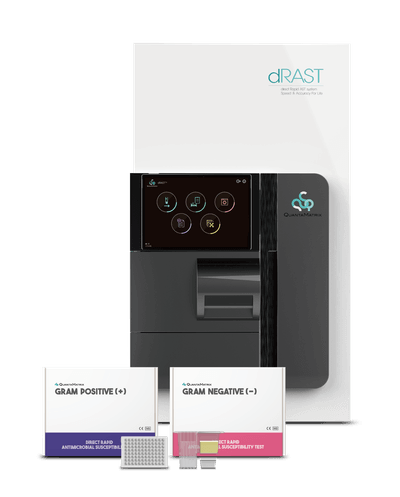- NEW
- IVD
- TOP

In view of the increasing resistance of bacteria to drugs, it is extremely important to quickly determine which antibacterial drugs can be effective against certain pathogens. Today's clinics are increasingly using antimicrobial susceptibility testing analyzers to help perform these tests with high speed and accuracy. These analyzers allow you to determine how sensitive bacteria or other microorganisms are to various antimicrobial agents, which is the key to choosing the right treatment.
An antimicrobial susceptibility testing analyzer is specialized equipment used to determine the susceptibility of pathogenic microorganisms to antibiotics and other antimicrobial drugs. Such devices help doctors and microbiologists quickly understand which drugs will be effective in the treatment of a particular infectious disease. First, a bacteriological culture is carried out on the flora to determine the presence of pathogens in the studied biomaterial. Only if pathogenic or opportunistic microorganisms are detected in a high concentration, the laboratory begins to analyze their sensitivity to antibiotics. For example, a system for testing sensitivity to antimicrobial drugs allows you to quickly assess the response of a pathogen to various agents, reducing the risk of incorrect prescription of drugs. In other words, these devices make it possible to choose the most effective antibiotics or other means for the treatment of each patient. In general, this is a laboratory research method aimed at choosing the optimal treatment regimen using antimicrobial drugs. The results of such an analysis are relevant only at the time of implementation, since therapy can change the reaction of microorganisms to the selected drug. Therefore, in the event of another disease or recurrence of the same, sensitivity testing can be prescribed again.
The basic principle of the antimicrobial sensitivity analyzer is the interaction of the culture of pathogens with different concentrations of antimicrobial drugs. Within a short time, the automatic AST system (antimicrobial susceptibility testing) determines which drugs effectively inhibit the growth of microorganisms and which do not. Some models of AST analyzers use special sensors to automatically measure bacterial growth and determine the level of sensitivity.
The latest automated AST systems are easy to use: they reduce human error, and the automatic interface allows you to get results quickly. This equipment not only facilitates the process, but also ensures high accuracy of measurements, which is important for accurate diagnosis.
AST analyzers and other systems for testing susceptibility to antimicrobial drugs are most often used in hospitals, diagnostic centers, private clinics and specialized laboratories. They are indispensable where rapid determination of the optimal treatment for bacterial and other infections is required. Such analyzers help to optimize therapy and prevent antibiotic resistance.
A modern antimicrobial sensitivity testing analyzer is an important tool in the fight against infectious diseases, which allows you to quickly and accurately select the necessary treatment. Thanks to automatic AST systems, doctors can significantly increase the effectiveness of antibacterial therapy, which is crucial for reducing the resistance of microorganisms to drugs. Thus, antimicrobial susceptibility analyzers play a key role in modern medicine, providing reliable diagnosis and reducing the risk of incorrect treatment.